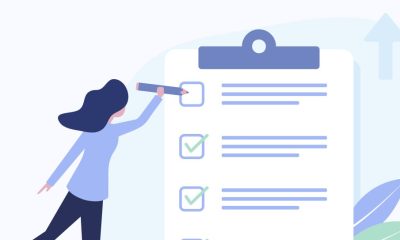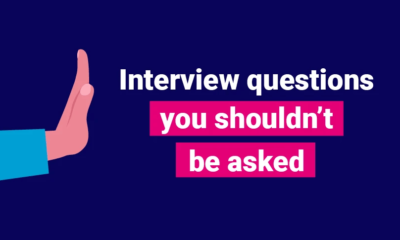Career Tips
Things You Must Know Before Attending A Job Interview

Are you ready for your next job interview? If you want the job, you must be prepared. This includes knowing the basics and how you will respond to common job interview questions. While the type of questions asked and the interview approach will differ based on who is interviewing you, the company, and the position you apply for, the basics will usually be the same. Here is a list of things you should always be aware of before attending a job interview.
The basic stuff
1. Are you actually interested in this job?
Do you really want this job, or are you going because it’s the first call you’ve gotten? Going into the interview, be clear about your intentions. Even if the work isn’t your dream job, be prepared to explain why it’s a good fit for you and what features of the role appeal to you. If you can’t think of anything, it could mean that this work isn’t a good fit for you.
2. What do you know about the company?
Better to know the company. Read up. Read the corporate website, social media, reviews, and latest news. Assess the company’s culture, direction, and fit. You’ll appear more interested if you can speak authoritatively about the company. Most employers like enthusiastic applicants.
3. Do you understand the job and requirements?
Be clear on what’s expected of you, should you accept the role. Read the job description prior to the interview so it’s fresh in your mind. Do you meet all the job requirements? If not, how will you address any of your shortcomings in the interview?
4. What salary will you ask for?
Know your worth. Check the average income for your desired position. Consider your location, experience, abilities, and other factors. Be flexible about salary. Prepare a range of about $5-10k. Your lowest number should be your target wage.
6. What questions will you ask the interviewer?
Ask the interviewer a question. Most interviewers ask if you have any questions at the end. Prepare questions about the role, company, and culture to avoid appearing uninterested. If the interviewer answers your question, have many options. Ask insightful, role-specific questions.
7. Tell me about yourself
Who are you personally and professionally? You should be able to answer this question in a focused and succinct way that summarizes who you are.
8. What are your deal breakers?
What makes a job offer acceptable? Perhaps you value flexibility. Request flexible hours or remote employment. You may expect health, dental, or vacation benefits/coverage. Whatever it is you expect to see in the job offer, be clear on the things that matter to you, and be ready to communicate them.
9. Answers to common interview questions
There is certain information all potential employers want to know about you as a candidate. This is why you can expect to hear some common questions in most job interviews. Be prepared to answer these (or very similar) questions.
9. Why are you the right candidate?
This is your opportunity to differentiate yourself from other candidates. Explain how your skills/experience can help the organization.
10. Your strengths and weaknesses
We all have them. Know your core strengths, as well as areas you could stand to improve. Think about them within the context of the job you’re interviewing for
11. Discuss a conflict you had at work
Work stress affects everyone. Our response matters most. Interviewers often ask about a specific experience in behavioural interviews. Preparing an example of a time you managed conflict well helps you answer one of the most typical behavioural interview questions.
12. Why are you leaving your current job?
When answering this question, avoid insulting your current employment. Focus on the positive even if you don’t like your boss or have problems with the firm. Focus on responses that relate to the desire to advance in your work and broaden your experience.
13. Your career goals or 5-year plan
What does the future have in store for you? Do you wish to advance in your career? Do you have any professional goals you’d like to achieve? Do you wish to expand your knowledge, training, and certifications? Have an idea of where you want your career to go and how this potential employment fits into it.
You can never be too prepared for a job interview. The suggestions above will assist you in mastering the basics. If you put in the time and effort to prepare, you’ll be able to give your finest performance during the interview.


















